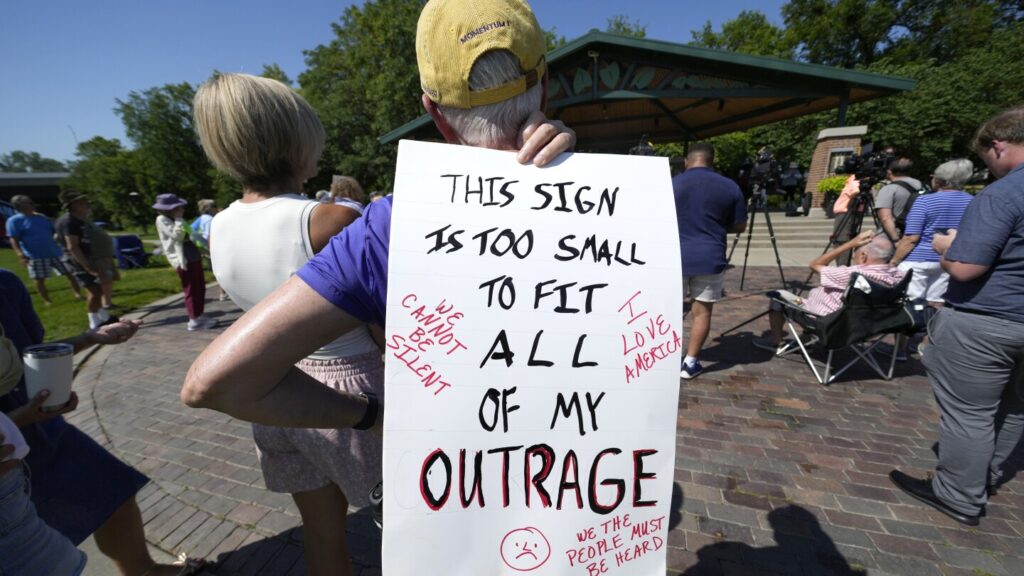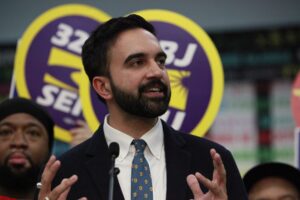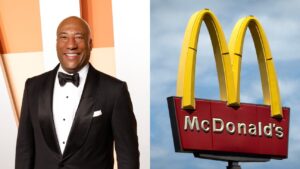
WINDSOR HEIGHTS, Iowa — It is both “big and beautiful,” according to President Donald Trump. However, for Democratic leaders, the tax break and spending cut package passed by Trump’s Republican allies in Congress represents a potential turning point for the Democratic Party’s resurgence.
Even before the final vote was counted, Democratic officials were laying out ambitious strategies for rallies, voter registration drives, attack ads, bus tours, and even a multiday vigil. These efforts aim to spotlight the most controversial aspects of Trump’s bill, which includes deep cuts to the nation’s safety net. According to the nonpartisan Congressional Budget Office, these cuts could leave nearly 12 million more Americans without health coverage and millions more without food assistance.
Democratic Strategy and Reaction
In political battlegrounds such as Alaska, Iowa, Pennsylvania, and California, Democrats have already begun utilizing Trump’s bill to challenge their Republican counterparts. They promise that the package — Trump’s most significant domestic policy achievement to date — will be the defining issue of every major election leading up to the next fall’s high-stakes midterms.
“One thing is abundantly clear: Republicans own this mess and it’s an albatross around their necks heading into the midterms,” Democratic National Committee Chair Ken Martin told The Associated Press. “This is the least popular legislation in modern history, and the more voters learn about it, the more they hate it. That’s a clear directive for Democrats — we’re going to make sure every single voter knows who is responsible.”
Challenges and Opportunities
Despite early public opinion favoring their stance, Democrats face significant challenges. The Democratic brand remains unpopular, the party lacks a clear leader, and its message is often seen as muddled. Core elements of the Democratic base are frustrated and drifting. Some changes in the bill won’t take effect until after the 2026 midterms, potentially delaying voter impact.
The Democratic super PAC Priorities USA cautioned that Democrats must intensify their efforts to break through the polarized media environment. “We can’t just assume that because we’re angry that the voters that we need to communicate with are angry. Everyone needs to step up and realize the enormous challenge that’s in front of us,” Executive Director Danielle Butterfield stated.
Contentious Elements of the Bill
The bill prioritizes $4.5 trillion in tax breaks enacted during Trump’s first term, which would expire if Congress failed to act, alongside new ones. It includes allowing workers to deduct tips and overtime pay, but also involves $1.2 trillion in cutbacks to Medicaid and food stamps and a significant rollback of green energy investments. The Congressional Budget Office estimates the package will add $3.3 trillion to the deficit over a decade.
While Democrats in Congress were united against the bill, and even some Republicans expressed concerns, Trump ultimately persuaded conservative holdouts to support it.
Public Engagement and Response
Some Democrats privately acknowledged that Republicans were strategic in passing the bill on the eve of a holiday weekend when fewer voters would be paying attention. Despite predictions of a fierce political backlash, the response was muted at a Democratic event in Iowa, where local officials criticized the legislation and urged voters to oust Republican Rep. Zach Nunn for his support.
Meanwhile, progressive activists are touring Minnesota in a big green bus as part of Fair Share America’s “stop the billionaire giveaway” tour. The group targets Republican-led districts where officials have largely ceased in-person town halls. Fair Share Executive Director Kristen Crowell noted, “We know we’re fighting upstream, but when people hear exactly what’s in this bill, they’re adamantly opposed.”
Polling and Public Perception
Polling indicates the GOP’s bill is generally unpopular, though some individual provisions find support. A Washington Post/Ipsos poll revealed majorities of U.S. adults favor increasing the annual child tax credit and eliminating taxes on earnings from tips. However, majorities oppose reducing federal funding for food assistance and spending on migrant detention centers.
About 6 in 10 U.S. adults said it was “unacceptable” that the bill is expected to increase the national debt by about $3 trillion over the next decade.
Despite these concerns, most Americans aren’t fully engaged with the bill’s details. The Washington Post/Ipsos poll found that only about one-third of U.S. adults have heard “a great deal” or “a good amount” about it.
Future Democratic Efforts
The Democratic National Committee and its allies are planning an “organizing summer” with town halls, training, and voter registration drives in at least 35 competitive districts, heavily focusing on Trump’s bill. Democratic groups are also preparing new digital attack ads targeting vulnerable Republicans.
Kansas Gov. Laura Kelly emphasized the need to keep the bill’s contents prominent in public discourse to ensure it remains an issue in the 2026 midterms and the 2028 presidential election. “We’ll just have to keep that on the radar,” she said.
Meanwhile, progressive groups are organizing a “Family First” day of action on July 26 across all 50 states, highlighting Americans affected by Medicaid cuts and holding a 60-hour vigil at the U.S. Capitol. “We have made a promise to each other and to future generations that there will be a safety net in place when we need it. And this is what’s being ripped away. And people will not stand for it,” said Ai-jen Poo, president of the National Domestic Workers Alliance.







